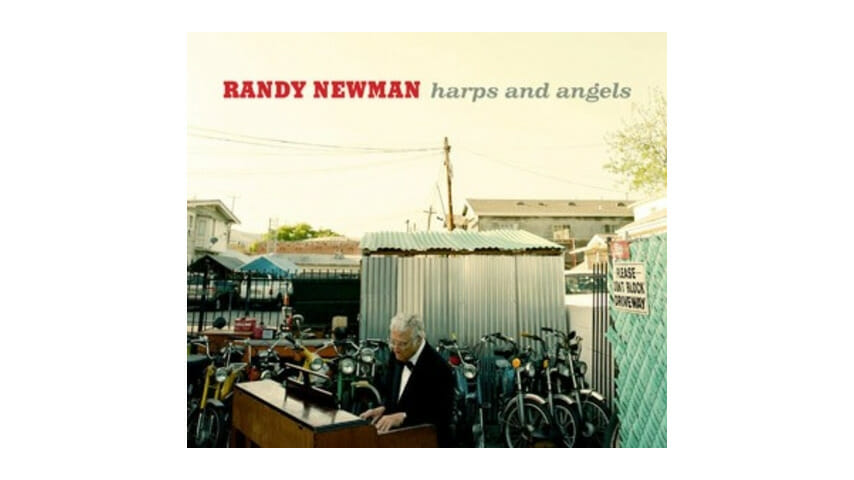Randy Newman: Harps and Angels

The world (still) isn’t fair, but the gimlet-eyed songwriter keeps singing about it
Many albums I receive in the mail include an artist bio that describes something other than the album I’m listening to. Emo bands cite Van Morrison influences. Metal ensembles insist their album isn’t like all the rest; that it features more in the way of inventive melody. And singer/songwriters transcend the clichés of their chosen genre—often alt.country—only to sing more songs about girls who haunt their memories as they stare down the barroom floor or wait on a train that never comes. I’m not calling these people liars. They’re just not as creative as they’d like to think. Or maybe they’re just too subtle for my taste.
But when Randy Newman decides to finally release the pause button on his songwriting career (taking a break from his lucrative Grammy-winning film scoring career), I know I’ll find myself intrigued. Because Newman believes his songs should be about something. He likes concepts and characters. He doesn’t mind making people uncomfortable. And if he was willing as a young, struggling songwriter to alienate his audience, you can be sure that, as he gets closer to that grand retirement, he isn’t likely to hold his tongue just to uphold some sense of decorum.
In context with other songwriters and their socially gracious platitudes, Newman can seem a tad mean. But it’s one of his greatest strengths. He deals with human nature. For every fine songwriter who dreams of a world holding hands like one magical Vaseline Intensive Care commercial, Newman uncovers the paradoxes, ironies and difficult decisions that “good” people face when their comfort zones are in jeopardy. Love is absolute but conditional.
-

-

-

-

-

-

-

-

-

-

-

-

-

-

-

-

-

-

-

-

-

-

-

-

-

-

-

-

-

-

-

-

-

-

-

-

-

-

-

-








































